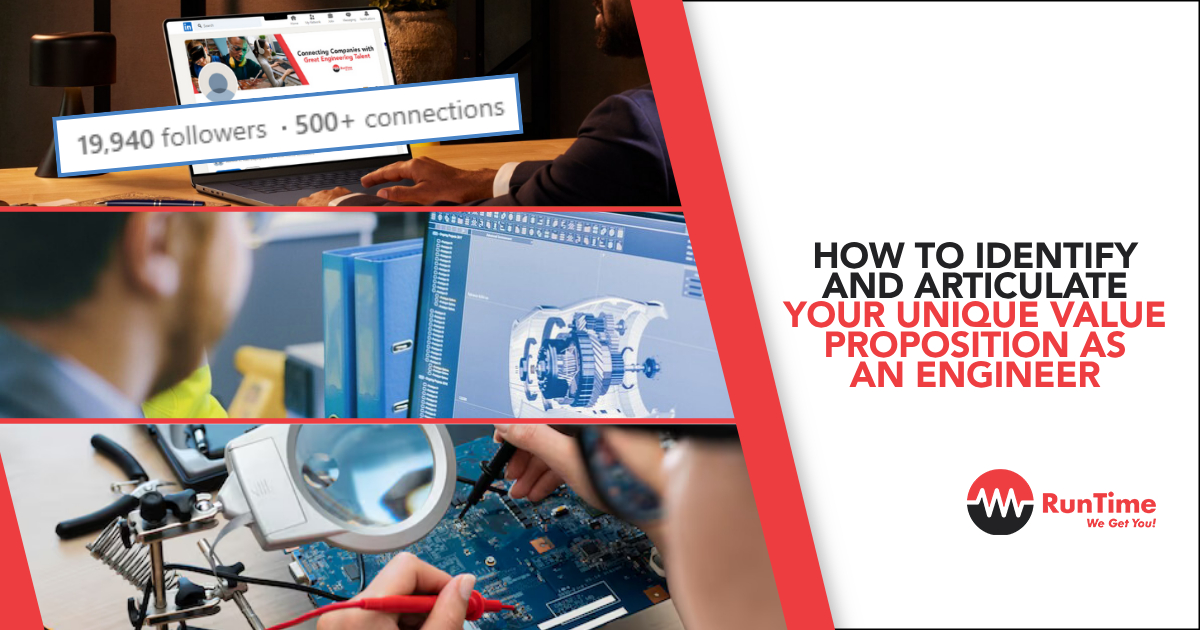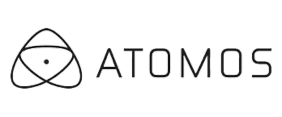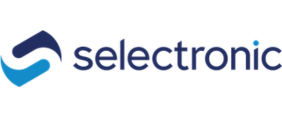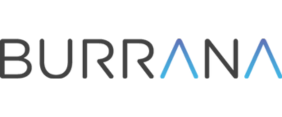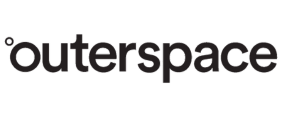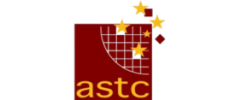In the competitive landscape of engineering, being able to clearly define and communicate your unique value proposition is essential for career success. Your value proposition is what sets you apart from other engineers and showcases the specific skills, experiences, and qualities that make you a valuable asset to employers or clients.
This process involves identifying your strengths, understanding the needs of your target audience, and crafting a compelling message that highlights what makes you exceptional. By effectively articulating your unique value proposition, you can differentiate yourself in the job market, attract opportunities that align with your expertise, and ultimately advance your engineering career to new heights. This guide will explore strategies and techniques to help engineers identify their strengths, understand their value, and communicate their unique proposition with confidence and clarity.
Understanding Your Strengths as an Engineer
Identifying Your Technical Skills, Industry Experience, and Unique Qualifications.
Recognizing Your Soft Skills and Personal Attributes That Set You Apart.
As an engineer, it is essential to have a thorough understanding of your strengths in order to excel in your career. This involves identifying not only your technical skills, industry experience, and unique qualifications but also recognizing the soft skills and personal attributes that set you apart from others. By acknowledging and leveraging these strengths, you can position yourself for success in the competitive engineering field.
Technical Skills and Expertise
To begin with, as an engineer, your technical skills form the foundation of your capabilities. These skills encompass your knowledge of engineering principles, software proficiency, problem-solving abilities, and any specialized expertise you possess. It is crucial to assess and continually enhance these technical skills to stay current with industry trends and advancements.
Industry Experience and Adaptability
Apart from technical skills, your industry experience plays a significant role in shaping your engineering career. Whether you are a seasoned professional or a recent graduate, each project you undertake adds to your wealth of experience. Being adaptable to different project requirements and industry demands showcases your versatility as an engineer.
Unique Qualifications and Certifications
Moreover, your unique qualifications and certifications set you apart in a competitive job market. These could range from advanced degrees and specialized training to professional certifications in specific engineering domains. Highlighting these qualifications demonstrates your commitment to continuous learning and professional development.
Soft Skills and Personal Attributes
In addition to technical prowess, soft skills and personal attributes are equally essential for success as an engineer. Effective communication, teamwork, leadership, and problem-solving skills are highly valued in engineering roles. Your ability to collaborate with interdisciplinary teams and adapt to changing project dynamics can greatly influence your career trajectory.
Embracing Your Strengths
Embracing your strengths as an engineer involves self-reflection and a willingness to grow. Recognize areas where you excel and areas for improvement. Seek feedback from peers, mentors, and supervisors to gain valuable insights. By leveraging your strengths and continually enhancing your skills, you can position yourself as a valuable asset in the engineering industry.
Understanding your strengths as an engineer is a continuous process that empowers you to navigate challenges and seize opportunities in your career journey. By identifying your technical skills, industry experience, unique qualifications, soft skills, and personal attributes, you can build a strong foundation for success and make significant contributions to the field of engineering.
Researching the Engineering Job Market
Analyzing the Current Trends and Demands in the Engineering Industry Job Market
Staying abreast of the current trends and demands in the engineering industry is paramount for aspiring engineers. With technological advancements and global challenges shaping the landscape, it becomes crucial to analyze key trends. By digging deep into industry reports, job postings, and economic forecasts, individuals can glean valuable insights. Understanding which engineering sectors are experiencing growth, the emerging technologies in demand, and the skill sets that are highly sought after can guide individuals in making informed career decisions.
Unveiling Opportunities in Niche Engineering Fields
While mainstream engineering sectors like software engineering and civil engineering often dominate discussions, there are numerous niche engineering fields brimming with opportunities. Exploring segments such as sustainable engineering, biomedical engineering, or aerospace engineering can unveil unique career paths. Researching these niche fields can reveal specialized skill requirements, industry growth projections, and the potential for innovation and impact.
Tailoring Skill Development to Industry Needs
Adapting to the evolving demands of the engineering job market requires more than just theoretical knowledge. It involves aligning skill development with industry needs. Platforms offering Massive Open Online Courses (MOOCs), industry certifications, and specialized workshops can help bridge skill gaps. By investing in continuous learning and upskilling, engineers can enhance their employability and stay competitive in the job market.
Leveraging Networking and Professional Associations
Beyond online research, networking plays a pivotal role in understanding the job market. Engaging with professional engineering associations, attending industry conferences, and connecting with seasoned professionals can provide firsthand insights. These interactions not only offer a glimpse into industry trends but also open doors to hidden job opportunities and mentorship possibilities.
Importance of Internships and Co-op Programs
One significant aspect of researching the engineering job market is recognizing the value of internships and co-op programs. These experiences offer aspiring engineers practical exposure to real-world projects, hands-on learning opportunities, and the chance to network with industry professionals. Internships not only enhance technical skills but also provide invaluable insights into company cultures and work environments, aiding individuals in making informed decisions about their career paths.
Embracing Diversity and Inclusion Initiatives
Engineering organizations are placing increasing importance on diversity and inclusion initiatives. Researching companies that prioritize diversity not only fosters a more inclusive work environment but also enhances creativity and innovation within teams. Understanding how different companies approach diversity and inclusion can help engineers align themselves with organizations that resonate with their values and goals.
Conclusion
Researching the engineering job market goes beyond surface-level analysis. It involves delving into nuanced trends, exploring niche fields, aligning skill development with industry needs, leveraging networking opportunities, recognizing the value of internships, and embracing diversity and inclusion initiatives. By taking a holistic approach to researching the job market and proactively seeking out opportunities for growth and development, engineers can position themselves for success in a competitive and dynamic industry.
Crafting Your Unique Value Proposition (UVP)
Crafting a compelling Unique Value Proposition (UVP) is essential in today’s competitive job market. Your UVP serves as a powerful tool to differentiate yourself from other job seekers and communicate the unique value you bring to potential employers. Let’s delve deeper into how you can craft a UVP that resonates with employers and increases your chances of landing your dream job.
Identifying Your Strengths
Your UVP should start with a thorough self-assessment of your strengths, skills, and experiences. Reflect on what sets you apart from your peers and how your unique blend of abilities can benefit an organization.
Understanding Market Insights
In addition to knowing yourself, it’s crucial to understand the industry and the specific needs of employers. Stay informed about the latest trends, technologies, and challenges in your field to tailor your UVP effectively.
Combining Strengths and Insights
To create a compelling UVP, merge your identified strengths with the market insights you’ve gathered. Showcase how your skills and experiences directly address the needs and pain points of potential employers.
Aligning with Values and Goals
A successful UVP not only highlights your capabilities but also demonstrates how you align with the values and goals of the companies you’re targeting. Showcase how your contributions can further their mission and objectives.
Quantifying Your Impact
To make your UVP even more persuasive, consider quantifying your past achievements and the impact you’ve had in previous roles. Numbers and tangible results can add credibility to your claims.
Tailoring for Each Application
Remember, a one-size-fits-all approach doesn’t work for UVPs. Customize your value proposition for each job application by highlighting the most relevant strengths and aligning them with the specific requirements of the role.
Enhancing Your UVP
Beyond the basics of crafting a UVP, consider enhancing it further by incorporating testimonials or endorsements from previous employers or colleagues. Real-life examples of how you added value in previous roles can provide concrete evidence of your capabilities.
Staying Updated
The job market is dynamic, and so should be your UVP. Regularly revisit and update your value proposition to reflect any new skills, experiences, or industry trends you’ve acquired. This continual refinement ensures that your UVP remains fresh and relevant to the current job landscape.
Networking Your UVP
Leverage networking opportunities to showcase your UVP. Whether at industry events, job fairs, or online professional platforms, effectively communicating your unique value can open doors to new career prospects and connections.
By meticulously crafting a UVP that showcases your uniqueness, aligns with employer needs, and demonstrates your value, you can significantly enhance your job search success. Keep refining and updating your UVP as you gain new experiences and skills to stay competitive in the ever-evolving job market.
Articulating Your UVP Effectively
It’s crucial to effectively communicate your Unique Value Proposition (UVP) to stand out from the crowd. Your UVP is what sets you apart from other candidates and highlights what you can uniquely offer to potential employers. Here are some key points to help you articulate your UVP effectively:.
- Crafting a Clear Statement: Develop a concise and compelling statement that clearly defines what makes you valuable to employers. Focus on your key strengths, skills, and experiences that align with the job requirements.
- Tailoring Your UVP: It’s essential to tailor your UVP for different job applications and networking opportunities. Customize your message to fit the specific needs and preferences of each potential employer. Show how your unique skills and experiences make you the perfect fit for the role.
By articulating your UVP effectively, you can make a strong impression on employers and increase your chances of landing your dream job.
Expanding Your UVP for Maximum Impact
While a clear and tailored UVP is essential, going a step further to expand on it can greatly enhance your job search success. Here are additional strategies to maximize the impact of your UVP:.
- Provide Specific Examples: Back up your UVP with concrete examples of how you have applied your skills and achieved results in previous roles. Quantify your accomplishments whenever possible to demonstrate your value.
- Highlight Your Unique Selling Points: Identify what truly sets you apart from other candidates and emphasize these unique selling points in your UVP. Whether it’s a rare skill, a valuable experience, or a specific achievement, make sure these aspects shine through.
- Incorporate Feedback: Consider seeking feedback from mentors, colleagues, or professional connections on your UVP. Their insights can help you refine your message and ensure it resonates with employers.
- Stay Authentic: While it’s important to present your UVP effectively, authenticity is key. Ensure that your UVP genuinely reflects who you are and what you can offer, avoiding exaggerations or misrepresentations.
By incorporating these strategies into your UVP articulation, you can further differentiate yourself in the job market and leave a lasting impression on potential employers.
Showcasing Your Unique Value Proposition (UVP) in Job Search and Interviews
Incorporating Your UVP into Your Resume, Cover Letter, and Online Profiles
Highlighting Your UVP During Job Interviews and Networking Events
When embarking on a job search or preparing for interviews, it is crucial to showcase your Unique Value Proposition (UVP) effectively. Your UVP is what sets you apart from other candidates and demonstrates the unique value you bring to a potential employer. Here are some key strategies to incorporate your UVP throughout the job search process:
Crafting Your Resume:
- Tailor your resume to highlight key accomplishments, skills, and experiences that align with your UVP.
- Use quantifiable results to showcase the impact you’ve made in previous roles.
Writing Your Cover Letter:
- Use your cover letter to tell a compelling story that reinforces your UVP.
- Connect your past experiences to the requirements of the job you’re applying for.
Optimizing Your Online Profiles:
- Update your LinkedIn profile and other professional profiles to reflect your UVP.
- Use keywords related to your UVP to increase your visibility to recruiters.
Interview Preparation:
- Practice articulating your UVP in a concise and compelling manner.
- Prepare specific examples that demonstrate how your UVP has contributed to your past successes.
Networking Events:
- Use networking events as opportunities to share your UVP with industry professionals.
- Focus on building relationships by showcasing how your unique skills and experiences can benefit others.
By effectively showcasing your UVP in your job search and interviews, you can differentiate yourself from other candidates and position yourself as a valuable asset to potential employers. Remember to tailor your messaging to each opportunity and consistently reinforce your UVP throughout the hiring process.
Additional Tips for Success:
Personal Branding:
- Develop a strong personal brand that aligns with your UVP. Consistency across all platforms reinforces your professional image.
Continuing Education:
- Invest in continuous learning to enhance your UVP. Stay updated on industry trends and technologies to remain competitive.
Seek Feedback:
- Request feedback from mentors, colleagues, or professional networks to refine your UVP presentation.
Volunteer Work:
- Engage in volunteer opportunities that allow you to apply your skills and further demonstrate your UVP outside of a traditional work setting.
Professional Development:
- Attend workshops, seminars, or conferences to network with professionals in your field and showcase your expertise.
Remember, your UVP is a dynamic aspect of your professional identity. Regularly reassess and refine it to align with your career goals and evolving skill set. By consistently integrating your UVP into all aspects of your job search and professional interactions, you can effectively communicate your unique value and stand out in today’s competitive job market.
Leveraging Specialized Recruitment Agencies for Success
Both companies and job seekers can benefit significantly from partnering with specialized recruitment agencies like RunTime. These agencies play a crucial role in bridging the gap between employers and potential candidates by not only focusing on technical skills but also emphasizing cultural fit and shared values.
Benefits for Companies
For companies, leveraging their unique value proposition (UVP) with recruitment agencies like RunTime can lead to more successful hiring outcomes. By entrusting the recruitment process to experts who understand the nuances of the engineering industry, companies can ensure that they attract top talent that aligns with their organizational values and culture. RunTime’s tailored approach to candidate sourcing and recruitment strategies can help companies streamline their hiring process and find candidates who not only meet the technical requirements but also contribute positively to the company’s overall mission and vision.
Benefits for Job Seekers
On the other hand, job seekers can also benefit from partnering with recruitment agencies like RunTime. These agencies provide job seekers with access to exclusive job opportunities within the engineering industry and facilitate connections with employers who share their career aspirations and values. By leveraging RunTime’s expertise in understanding company culture and providing pre-interview coaching, job seekers can make more informed decisions about their career paths and align themselves with employers who offer not just a job but a fulfilling career.
Key Advantages of Partnering with Recruitment Agencies
One of the key advantages of partnering with a specialized recruitment agency like RunTime is the access to a pool of highly qualified candidates who may not be actively seeking job opportunities but are open to the right offers. These passive candidates often bring a wealth of experience and unique perspectives to the table, enriching the talent pool within companies. By tapping into this pool, companies can gain a competitive edge in the market and access talent that may not be easily reachable through traditional job postings. Additionally, recruitment agencies like RunTime can provide valuable insights into market trends, salary benchmarks, and competitor analysis, helping companies make informed decisions when it comes to hiring and talent acquisition strategies.
Emphasis on Cultural Fit
Moreover, the role of recruitment agencies extends beyond matching resumes to job descriptions. RunTime, for example, goes the extra mile to ensure that the cultural fit between a candidate and a company is strong. By conducting in-depth interviews, assessing soft skills, and understanding the core values of both parties, RunTime can facilitate connections that are not just based on technical competencies but on shared beliefs and work ethics. This emphasis on cultural alignment can result in higher employee satisfaction, lower turnover rates, and overall improved performance within organizations.
Personalized Support for Job Seekers
For job seekers, partnering with a recruitment agency like RunTime means having a dedicated partner in their job search journey. From resume optimization and interview preparation to salary negotiation and career guidance, RunTime offers comprehensive support to candidates at every stage of the hiring process. This personalized approach can significantly increase a candidate’s chances of landing their dream job and starting a fulfilling career in the engineering industry.
Conclusion
In essence, the collaboration between companies and recruitment agencies like RunTime is a win-win situation for all involved. Companies can find the right talent efficiently and effectively, job seekers can discover exciting career opportunities that match their ambitions, and recruitment agencies can facilitate connections that lead to long-lasting professional relationships. By leveraging the expertise and resources of recruitment agencies, both companies and job seekers can navigate the complex landscape of the engineering job market with confidence and success.
Networking and Building Your Professional Brand
Networking plays a crucial role in building a successful career and establishing a strong professional brand. In this section, we will delve into the importance of networking and how it can help you showcase your Unique Value Proposition (UVP) while expanding your connections. Additionally, we will explore the significance of building a professional brand that aligns with your UVP and attracts potential opportunities.
Engaging in Networking Opportunities to Showcase Your UVP and Expand Your Connections
Networking is not just about exchanging business cards or connecting on LinkedIn; it’s about building meaningful relationships that can propel your career forward. By actively engaging in networking opportunities such as industry events, conferences, and professional gatherings, you can effectively showcase your UVP to a wider audience. Your UVP is what sets you apart from others and highlights the unique value you bring to the table. Whether it’s your expertise, skills, or experience, networking allows you to communicate your UVP and differentiate yourself in a competitive market. Moreover, networking helps you expand your connections and build a strong support system of professionals who can offer valuable insights, advice, and even potential job opportunities.
Building a Strong Professional Brand that Aligns with Your UVP and Attracts Potential Opportunities
Your professional brand is how you present yourself to the world and how others perceive you. It encompasses your reputation, values, expertise, and overall image. To build a strong professional brand, it is essential to align it with your UVP. Your brand should reflect who you are, what you stand for, and the unique value you offer. Consistency is key when it comes to branding – from your resume and online presence to your interactions with others, ensure that your brand message is clear and consistent. A strong professional brand not only helps you stand out in a crowded marketplace but also attracts potential opportunities such as job offers, collaborations, and partnerships. By effectively communicating your UVP through your brand, you can position yourself as a valuable asset and create a lasting impression on others.
Networking and building your professional brand go hand in hand in shaping your career and unlocking new opportunities. By leveraging networking to showcase your UVP and building a strong brand that aligns with it, you can establish a solid foundation for success and growth in your professional journey.
Conclusion
In the competitive field of engineering, identifying and articulating your unique value proposition is essential for career success. By understanding your strengths, skills, and experiences, you can differentiate yourself from others and showcase what sets you apart. Crafting a compelling value proposition allows you to effectively communicate your worth to potential employers or clients, ultimately opening up opportunities for growth and advancement in your engineering career. Remember, your unique value proposition is your personal brand – make it clear, concise, and impactful.

